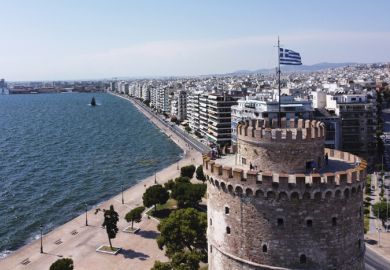The death of Hugo Chavez is unlikely to lead to much-needed changes within Venezuela’s “isolationist” university system, a higher education expert has told an international conference.
Orlando Albornoz, professor of education at the Central University of Venezuela, told delegates at Going Global, the British Council’s conference for higher education leaders, that those in charge of higher education in his country would remain deeply committed to a “different vision” of university education.
His comments follow the death of the Venezuelan president Hugo Chavez at the age of 58 on 5 March following a long battle with cancer.
“The death of Chavez will not change anything,” Professor Albornoz said.
“I believe Chavez leaves a negative legacy for higher education, but it will remain as the regime is strong.”
Professor Albornoz, author of Higher Education Strategies in Venezuela, said higher education institutions in the country had shunned collaboration with US and European universities and instead concentrated on links with Cuba.
“Their centre [of focus] is Havana,” he told an audience at the Dubai World Trade Centre on 6 March.
“They are locally focused, rather than globally aware,” he said.
“I’m not saying they are going backwards, but it is an entirely different vision [for higher education].”
Professor Albornoz later told Times Higher Education that Mr Chavez’s government had made some progress in terms of expanding student numbers, but remained hostile to some parts of academia.
“He expanded access to higher education, but these new universities that comprise about half of all universities are ruled by Marxist doctrine,” he said.
“The autonomous research universities are not given resources. Academic salaries have also gone down by 46 per cent and inflation stands at 20 per cent.
“[The government] does not care about doctoral students either. Mr Chavez often said that the knowledge is in the people.”
Professor Albornoz said it was vital for Venezuelan universities to engage with international universities.
“We have cut down the internationalisation process that we need,” he said. “We cannot live without contact with other leading universities.”
Register to continue
Why register?
- Registration is free and only takes a moment
- Once registered, you can read 3 articles a month
- Sign up for our newsletter
Subscribe
Or subscribe for unlimited access to:
- Unlimited access to news, views, insights & reviews
- Digital editions
- Digital access to THE’s university and college rankings analysis
Already registered or a current subscriber? Login




